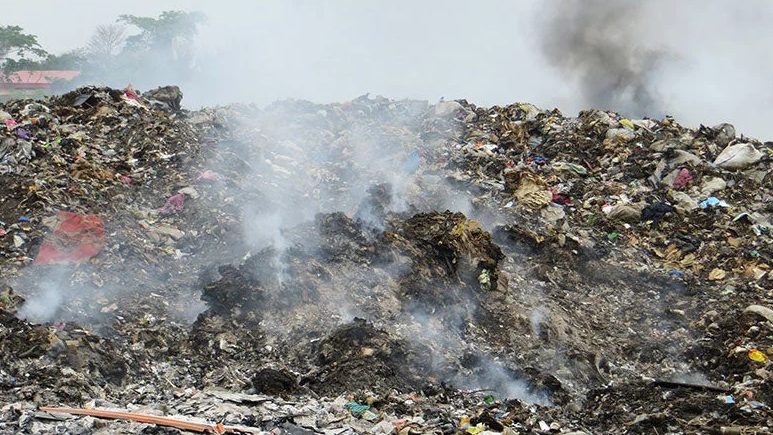The fantasy that natural resources are inexhaustible and always renewable, despite the overwhelming amount of waste generated has been dispelled by the alarming decline of our environmental health.

Waste management crisis
The global waste crisis is staggering. Annually, it is on record that more than 2 billion tons of municipal solid waste are generated, yet a mere 9 percent of plastic waste is recycled worldwide, contributing to around 5 percent of global greenhouse gas emissions.
The world is struggling to cope with this escalating problem of waste management. In 2019, the Global Material Footprint reached a staggering 85.9 billion tonnes, representing a significant increase from 73.2 billion tonnes a decade earlier, according to the United Nations. Furthermore, the volume of electronic waste, including discarded smartphones, tablets, and other devices, surged by 38 percent in the same year, underscoring the urgent need for sustainable waste management solutions.
Similarly, Nigeria faces a daunting waste management challenge, with statistics painting a grim picture. Annual waste generation in the country stands at 32 million metric tons, with a 20-30 percent collection rate. Daily waste generation per capita is approximately 0.51kg, with total waste expected to reach 107 million tonnes by 2050.
The country also generates 1.5 million tonnes of plastic waste annually, with a below 10 percent recycling rate. These statistics have ranked Nigeria among the world’s worst waste management offenders, with far-reaching environmental and health consequences, including greenhouse gas emissions, water pollution, and land degradation.
The theme of this year’s Global Recycling Day “Breaking Barriers: A Revolutionary Blueprint for the Waste Management Crisis”, is particularly poignant, as it serves as a timely reminder of the vital role recycling plays in combating climate change, preserving natural resources, and driving sustainable development.
It cautions us against embracing habits that undermine our collective well-being and jeopardize the prospects of future generations.
Nigeria’s ongoing efforts to update its Nationally Determined Contributions (NDCs) as part of its obligation to the United Nations Framework Convention on Climate Change (UNFCCC) present an opportunity to prioritize renewable energy sources, including waste-to-energy technologies, as part of a Just Transition.
The country must adopt policies that promote sustainable practices and guarantee the protection of its ecosystems while fostering economic development and social equity.
The fate of our planet hangs precariously in the balance, underscoring the urgent need for sustainable practices and environmental protection.
This is why climate activists such as Akinbode Oluwafemi, Executive Director of Corporate Accountability and Public Participation Africa (CAPPA), believe that “addressing this challenge demands a concerted effort to promote recycling awareness, engage communities in sustainable initiatives, and develop innovative waste management solutions.”
Oluwafemi further emphasised the importance of governments and stakeholders collaborating to establish an enabling environment, supported by forward-thinking policies and a robust legal framework.
In addition, Ogunlade Olamide, Asssociate Director (Climate Change) at CAPPA, notes that transitioning to a circular economy necessitates a deliberate shift in individual behaviour.
“We must prioritize reducing, reusing, and recycling to achieve this goal,” he stressed.
Olamide recommended minimising the use of single-use plastics and opting for reusable alternatives, such as bags, containers, and water bottles. By embracing this approach, he maintained, “we can decrease greenhouse gas emissions, create new job opportunities, and drive sustainable economic growth.”
To build a sustainable future, we must dismantle the barriers posed by outdated infrastructure and adopt cutting-edge waste management solutions that prioritise environmental stewardship.
By Ogunlade Olamide and Esi-Ife Arogundade
Olamide is the Asssociate Director (Climate Change) at CAPPA while Arogundade is a climate change advocate at CAPPA.
